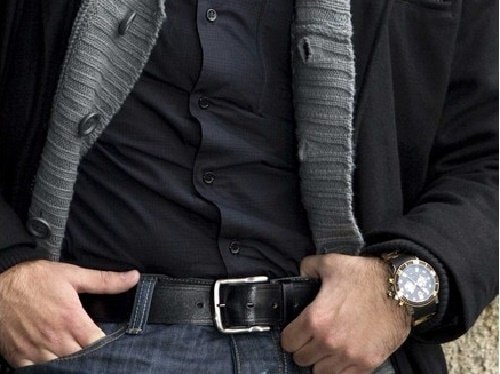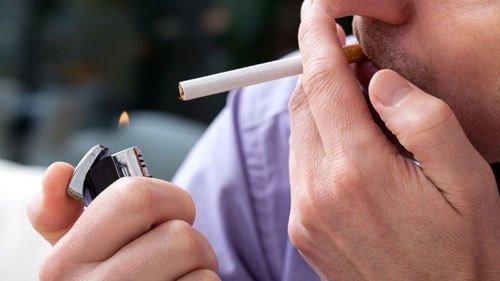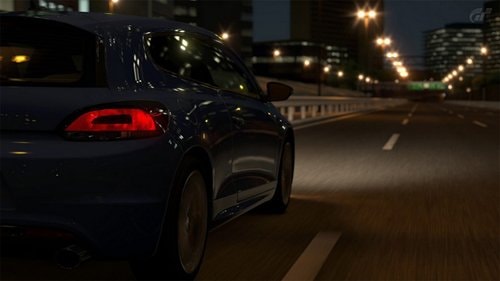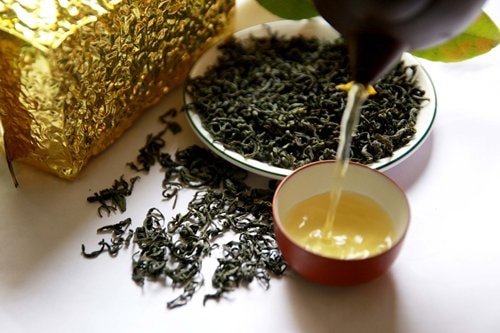9 bad habits after meals can cause a series of unexpected diseases
Some small actions after meals can also affect health, even cause many dangerous diseases, many people are still doing it every day. Below are 9 taboos that should not be done after a full meal:
1. After eating, loosen your belt.
After eating a full meal, many people reflexively loosen their belts, which will cause the pressure in the abdominal cavity to suddenly drop. The support of the digestive tract is weakened, increasing the burden on the digestive organs and ligaments, affecting the digestion of food, easily causing indigestion, abdominal pain, etc., and can even cause side effects such as intestinal torsion or intestinal obstruction.

In the long run, this action can also cause gastroptosis, abdominal discomfort and other gastrointestinal diseases.
2. Go to bed immediately after eating
Going to bed right after eating slows down stomach and intestinal activity, reduces digestive secretions, food is not fully digested and absorbed, and over time can cause nutritional deficiencies.
At the same time, after a full meal, the stomach pressure increases. If you lie on your back immediately, it may cause gastroesophageal reflux and vomiting symptoms. Usually, such symptoms can also lead to reflux esophagitis. After eating, you should sit and rest for at least 30 minutes to let the food in your stomach digest. Only then should you lie down and rest.
3. After eating, smoke a cigarette.
Studies have shown that smoking a cigarette after eating is much more dangerous than smoking 10 cigarettes at any other time. Because after eating, the body's digestive system is active, blood circulation is increased, and cellular respiration is enhanced.

At this time, smoking, lung tissue will increase the absorption of smoke, causing more toxic substances such as nicotine to enter the body. In addition to directly stimulating the respiratory tract and lungs, it also causes damage to other tissues and organs.
4. Go to the toilet immediately after eating
When the food in the stomach has not been digested, it is not advisable to defecate immediately. Because holding your breath will cause the pressure in the abdominal cavity to suddenly increase, stomach acid and digestive enzymes can flow back into the esophagus, which over time will cause esophageal ulcers due to reflux.
Immediately after eating defecation can also lead to bladder dysfunction, bile reflux, resulting in congestion, edema and even gastritis. The recommended time to defecate is early in the morning, after waking up.
5. Singing after eating
If you sing right after eating, the diaphragm will move down, increasing the pressure in the abdominal cavity. If it is mild, it will lead to indigestion, if severe, it can cause digestive discomfort and other diseases.
In addition, if you drink alcohol while eating, your throat and vocal cords will be more congested than usual. Singing at this time with loud sounds will increase the congestion and congestion in your throat and vocal cords, which can easily cause hoarseness and sore throat, which will progress to acute pharyngitis and laryngitis.
6. Drive immediately after eating

After eating, the stomach needs a large amount of blood to digest food. This will cause temporary ischemia in the brain, making the reaction slow and causing drowsiness. During driving, it is easy to make incorrect judgments, greatly increasing the likelihood of an accident.
7. Drink cold water after eating
Drinking cold drinks after meals will cause the mucosal blood vessels of the stomach wall to contract, inhibiting the secretion of digestive glands, leading to weakened stomach activity, easily causing digestive disorders and loss of appetite. In particular, eating cold drinks after meals is also the biggest enemy of the cardiovascular system.
8. Drink tea right after eating

Many people have the habit of sipping a cup of hot tea after a meal as a dessert, however, this is not good for the body. The polyphenols in tea prevent the body from absorbing iron and also hinder the digestion of protein in food.
9. Bath after eating
When bathing, under the stimulation of warm water, the blood vessels under the skin of the whole body dilate, causing blood to concentrate on the skin surface while the amount of blood in the digestive tract will decrease, diluting secretions leading to indigestion. In addition, if you have the habit of bathing after eating, it will also cause insufficient blood supply to the heart, causing cardiovascular diseases.
